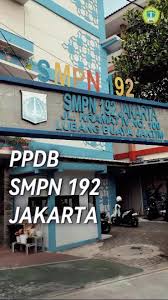Jakarta: A Dynamic Capital City of Indonesia

Introduction
Jakarta, the capital city of Indonesia, stands as a vibrant hub of culture, economy, and diversity in Southeast Asia. With a population exceeding 10 million people, it is one of the most populous cities in the world. The significance of Jakarta lies not only in its role as the political and economic capital of Indonesia but also in its rich history and its evolving urban landscape, making it a focal point for tourists, investors, and scholars alike.
A Cultural and Economic Hub
Jakarta’s economy is among the fastest-growing in the region, driven by sectors such as manufacturing, trade, and finance. The city serves as the headquarters for numerous multinational companies, making it a critical financial centre in Southeast Asia. Recent reports from the Asian Development Bank indicate that Jakarta’s economic growth is projected to remain robust, with an emphasis on technology and sustainable development.
Recent Events
In September 2023, Jakarta hosted the ASEAN Summit, where regional leaders gathered to discuss pressing issues such as climate change, economic integration, and regional security. The event showcased Jakarta’s ability to facilitate high-level discussions and further cemented its reputation on the global stage. Additionally, the city has been actively promoting investments in infrastructure to support its growing population and urban needs.
Cultural Diversity
Jakarta’s rich tapestry of cultures is reflected through its various festivals, culinary delights, and historical landmarks. From the vibrant markets of Tanah Abang to the historic Old Batavia, the city offers a blend of the old and the new. Recent initiatives to promote local arts and crafts have gained traction, as the government strives to increase tourism and preserve local heritage.
Challenges and Future Outlook
Despite its rapid growth and cultural richness, Jakarta faces significant challenges, including traffic congestion, pollution, and vulnerability to flooding. The local government has been proactive in addressing these concerns through urban planning initiatives and investment in public transport systems. The recent launch of the Jakarta MRT has received positive feedback, improving connectivity and encouraging sustainable travel.
Conclusion
As Jakarta continues to evolve, it embodies both the challenges and opportunities of a rapidly urbanising world. With its strategic location, growing economy, and diverse cultural offerings, Jakarta is poised to maintain its status as a major global city. For anyone looking to understand the dynamics of Southeast Asia, Jakarta serves as a compelling case study of resilience and growth in the face of modern challenges.








